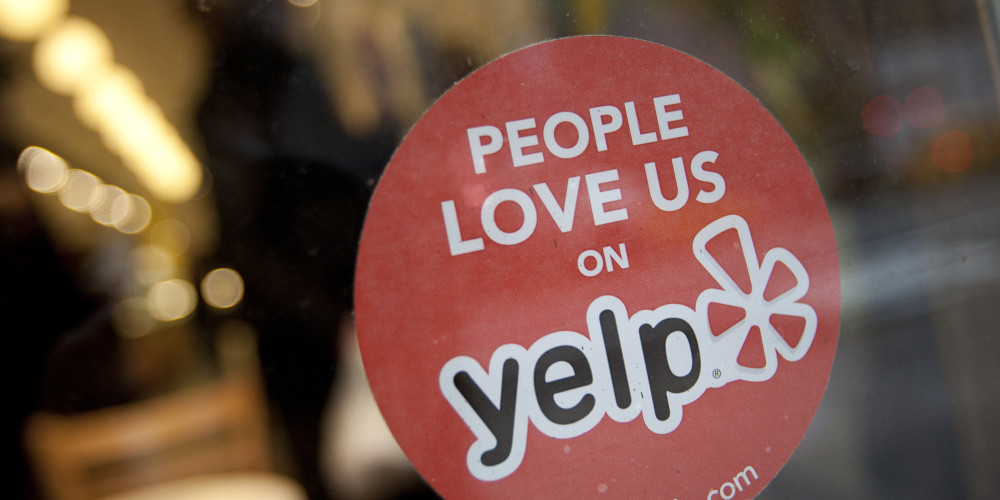By Jolene Cleaver
Observer-Dispatch, Utica, N.Y.
WWR Article Summary (tl;dr) Some small business owners are concerned that Yelp and similar websites can do real damage to their businesses. Many complaints are about unfair reviews from users, but at least one small business believes Yelp’s own policies are the problem.
Observer-Dispatch, Utica, N.Y.
The internet and social media have long proved to be important tools when it comes to promoting a small business, but sometimes, they also can have the opposite effect.
Over the last few years, online review platforms such as Yelp.com have occassionally made headlines due to complaints from business owners and others that certain reviews are overly negative, fake or unfairly ranked to make poor reviews more prominent.
In a few cases, these complaints have led to court cases.
In July, the Associated Press reported on a California Supreme Court that found that Yelp could not be ordered to remove posts against a San Francisco law firm that another lower court judge originally had determined were defamatory.
In a divided 4-3 opinion, the higher court ruled removal orders obtained against Yelp “could interfere with and undermine the viability of an online platform.”
Some local business owners, however, are more worried that Yelp and similar websites could interfere with and undermine their livelihoods. And while many complaints are about unfair reviews from users, at least one local business believes Yelp’s own policies are the problem.
“Yelp is targeting small businesses by withholding positive reviews,” said Michael Brown, executive director of Rome Main Street and owner representative for Copperccino’s Coffee House, which opened Nov. 1. “There are multiple lawsuits against their predatory practices. Our new business has 33 positive reviews (with 4 to 5 stars) and Yelp is only counting three bad reviews from our first week in business.”
A review of the cafe’s Yelp page shows it currently has a one-and-a-half star rating based on five “recommended” reviews. A nondescript link at the bottom of that list of reviews gives users the option of viewing “36 other reviews that are not currently recommended.” As Brown said, those hidden reviews appear to be overwhelmingly positive.
On Facebook, by comparison, the cafe currently has a 4.9 out of a five-star rating based on 54 reviews.
Brown said the business got a few negative Yelp reviews the first few weeks they were open, but questioned whether those early reviews should forever haunt the enterprise.
“We were working the bugs out,” he said.
Other local business owners also have expressed concern about the fairness of some online reviews, including those on Facebook and Google.
“I will say this,” local entrepreneur Jack Pflanz wrote as part of one Facebook thread on the topic. “I disagreed with someone on their political views, and because I did, they went to my business Facebook page and gave me one star.”
Is there recourse?
Brown said he called Yelp to object to Copperccino’s ranking, but was dismayed that the conversation did not go well. The customer service representative was rude, he said.
He remembered asking the representative why some positive reviews were apparently disappearing.
“He said, ‘We don’t have to be fair. We’re Yelp,'” Brown remembers.
“It’s awful,” he added. “(Business owners) have no recourse. They hold these things over their head. There’s so many cards stacked against you as a business person to have this large company go against you.”
When Yelp was asked for an interview, an emailed statement was provided that explained how their review ranking algorithm works.
“Yelp’s goal has always been to protect consumers and provide trustworthy and reliable content,” the statement reads. “Our automated recommendation software is engineered to highlight the most useful and relevant content to consumers. Our recommendation software weeds out reviews that may be fake, biased, solicited or unhelpful rants or raves. We err on the side of caution when it comes to protecting consumers and providing trustworthy and reliable content, so sometimes our software weeds out real reviews from real people because we just don’t know enough about the user to recommend their opinion to our community. We can’t say for certain why any specific review is displayed first or becomes not recommended. Our recommendation software looks at a number of data points to determine if a review is trustworthy. More often than not, the reviews we recommend come from the most active and engaged members of the Yelp community.”
One option for those who feel they’ve been treated unfairly by a business is to file a complaint with the state Attorney General’s Office. Then, if enough complaints are received regarding a particular issue, a division of the office opens an inquiry.
“We always encourage people to file complaints. Those lead to investigation,” a spokesman said recently.
Regarding the Yelp algorithms specifically, however, the state Attorney General’s Office noted that they were examined about five years ago and found to be acceptable.














































































































































































































































































































































































